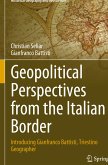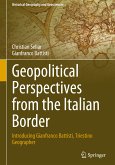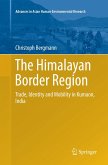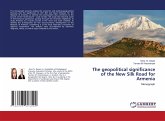
Broschiertes Buch
Introducing Gianfranco Battisti, Triestino Geographer
2023
16. April 2024
Springer / Springer International Publishing / Springer, Berlin
978-3-031-26046-9
| Gebundenes Buch | 133,99 € | |
| eBook, PDF | 129,95 € |

Gebundenes Buch
Introducing Gianfranco Battisti, Triestino Geographer
2023
15. April 2023
Springer / Springer International Publishing / Springer, Berlin
978-3-031-26043-8
Broschiertes Buch
Relations between the processes of outsourcing of Italian textile and clothing firms and the emergence of industrial districts in Eastern Europe
2009
VDM Verlag Dr. Müller
eBook, PDF
13. April 2023
Springer International Publishing
Ähnliche Artikel

Broschiertes Buch
Trade, Identity and Mobility in Kumaon, India
Softcover reprint of the original 1st ed. 2016
22. April 2018
Springer / Springer International Publishing / Springer, Berlin
978-3-319-80631-0

Broschiertes Buch
Monograph
29. Juni 2021
LAP Lambert Academic Publishing

Broschiertes Buch
7. September 2021
Our Knowledge Publishing

Broschiertes Buch
1. Auflage
9. Januar 2015
GRIN Verlag


Broschiertes Buch
The Innovationology Series / TOME VII
1. Auflage
3. September 2024
GRIN Verlag

Gebundenes Buch
Potentials, Pitfalls and Perspectives
1st edition 2019
27. Februar 2019
Springer / Springer International Publishing / Springer, Berlin
978-3-030-05960-6

Broschiertes Buch
Spatial Perspective, Theoretical and Practical
2023
18. Mai 2024
Springer / Springer International Publishing / Springer, Berlin
978-3-031-29722-9

Gebundenes Buch
Spatial Perspective, Theoretical and Practical
2023
18. Mai 2023
Springer / Springer International Publishing / Springer, Berlin
978-3-031-29719-9
Ähnlichkeitssuche: Fact®Finder von OMIKRON
